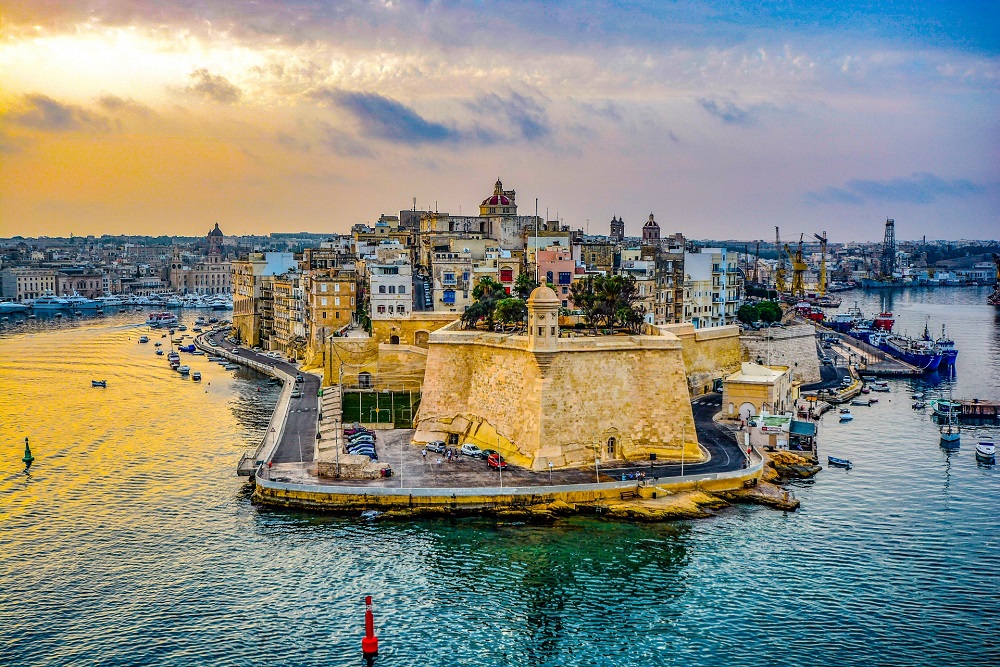Malta, an island nation in the Mediterranean Sea, is completing the first ever attempt by a nation state to tie citizen records to the blockchain. If successful, a scaled-up version of the pilot program will give Malta’s 400,000 residents the ability to retrieve and share educational records and transcripts for free. What’s more, it would provide a proof-of-concept that could inspire other countries to adopt similar programs.
Since September 2017, the Maltese government has been working with Learning Machine Technologies, a New York-based company, on a pilot program that issues certificates anchored to a blockchain to people enrolled in higher education, civil servant job training, and vocational programs.
A blockchain is a type of digital ledger: a continuing record of transactions that securely verifies and timestamps the activity between two parties. One key advantage of a blockchain over other storage methods, such as a database, is that transactions on a blockchain aren’t controlled by a centralized power. Furthermore, these transactions can be publicly verified, and past transactions cannot be erased or tampered with. Better still, an on-chain record can be read only by people who hold the correct cryptographic keys.
Learning Machine’s Malta pilot works like this: A Maltese institution decides to issue a blockchain-based identity record to a recipient. That recipient can download a free app that uses Blockcerts, an open standard for blockchain-based certificates developed by Learning Machine that manages public and private cryptographic keys. Users own the private key forever, even if that institution shuts down. By sharing the public key with other parties that wish to verify the user’s documents, the user grants those parties access to his or her blockchain-based certificate.
“We’ve just created access with free verification in an instant, which used to be extremely time consuming and daunting,” said Natalie Smolenski, the vice president of business development for Learning Machine. (The only catch is that a user must own a smartphone to use the Blockcerts app, and be sure they don’t lose track of their private key).
Learning Machine has declined to reveal how many Maltese citizens and residents are currently using its program to acquire blockchain-based certificates. But the program involves a few major Maltese institutions that have been issuing graduates and others certificates tied to the blockchain. These include: the Ministry for Education & Employment, which is overseeing a project for issuing all school-leaving certificates; the Institute for Tourism Studies, from which all students graduating in 2018 will receive certificates tied to the blockchain; the Malta College for Arts, Sciences, and Technology, which is also issuing blockchain-based certificates to students graduating in 2018; and the National Commission for Further & Higher Education, which is notarizing its education and training licenses through blockchain and replacing lost original certificates with new ones tied to blockchain.
Of course, “in order for this to work, the records have to come from institutions with issuing authority,” says Chris Jagers, CEO of Learning Machine. Jagers and his colleagues decided to focus Malta’s first pilot on higher education documents after noticing that students who grew up as digital natives became annoyed when they applied to college and couldn’t send their transcripts out digitally, for free. The same decentralized network for logging Bitcoin transactions seemed like a perfect solution. In the case of a transcript, “it’s a transaction that has value that people are going to want to verify later—it’s the same thing,” Jagers says.
The results of the pilot, now eight months in operation, are still awaiting official release. But Alex Grech, a lecturer at the University of Malta who’s working as a special advisor to Malta’s minister for education and employment, is confident that Learning Machine’s contracts will be renewed in when the current pilot ends in August. A successor program, says Grech, will expand to more areas of the education sector.
Malta might be a relatively small country, but it’s the perfect size for an experiment like this one. A successful pilot would not only demonstrate Malta’s usefulness as an underrated testing ground for new technologies, but also be a key validation that Learning Machine’s concept could be scaled up and applied more broadly in other, larger communities. “We really wanted to prove this out at a higher political level, but within a smaller context that was manageable.” says Jagers. “We wanted to prove it was super easy to use, for other parts of the world. It’s a global solution.”
Separately, Learning Machine has worked with students at MIT’s Sloan Business School and the MIT Media Lab to issue degrees anchored to the blockchain. Elsewhere, the company has also begun blockchain credentialing at the University of Melbourne and will soon enroll customers in the Bahamas as well.
To emphasize the need for such a service, Grech points out that Malta’s location, between North Africa and the southern end of Italy, makes it part of the immigration route for refugees who leave Africa and parts of the Middle East for Europe. If blockchain-based credentialing programs were adopted in African and Middle Eastern countries, those records could help refugees prove they’re well-educated and qualified for specialized occupations, especially if their alma mater suddenly disappears. Grech also argues that the swell in the popularity of online learning, the growing trend of continuing education into adulthood, and the booming business of fake degrees will further drive demand for authentic digital versions of education certificates.
Meanwhile, Malta can use the success of the pilot as a launching point for tying other kinds of citizen data, like property records and health records, to the blockchain. The pilot is part of Malta’s drive to incorporate blockchains into as many facets of civil society as possible, and invite blockchain startups to set up shop on the country’s islands in order to grow the local economy. So far, that strategy seems to be working; soon after the government’s March announcement that it would enact financial-tech legislation, Binance, the world’s largest cryptocurrency exchange, said it would open an office there.
Source: IEEE Spectrum

